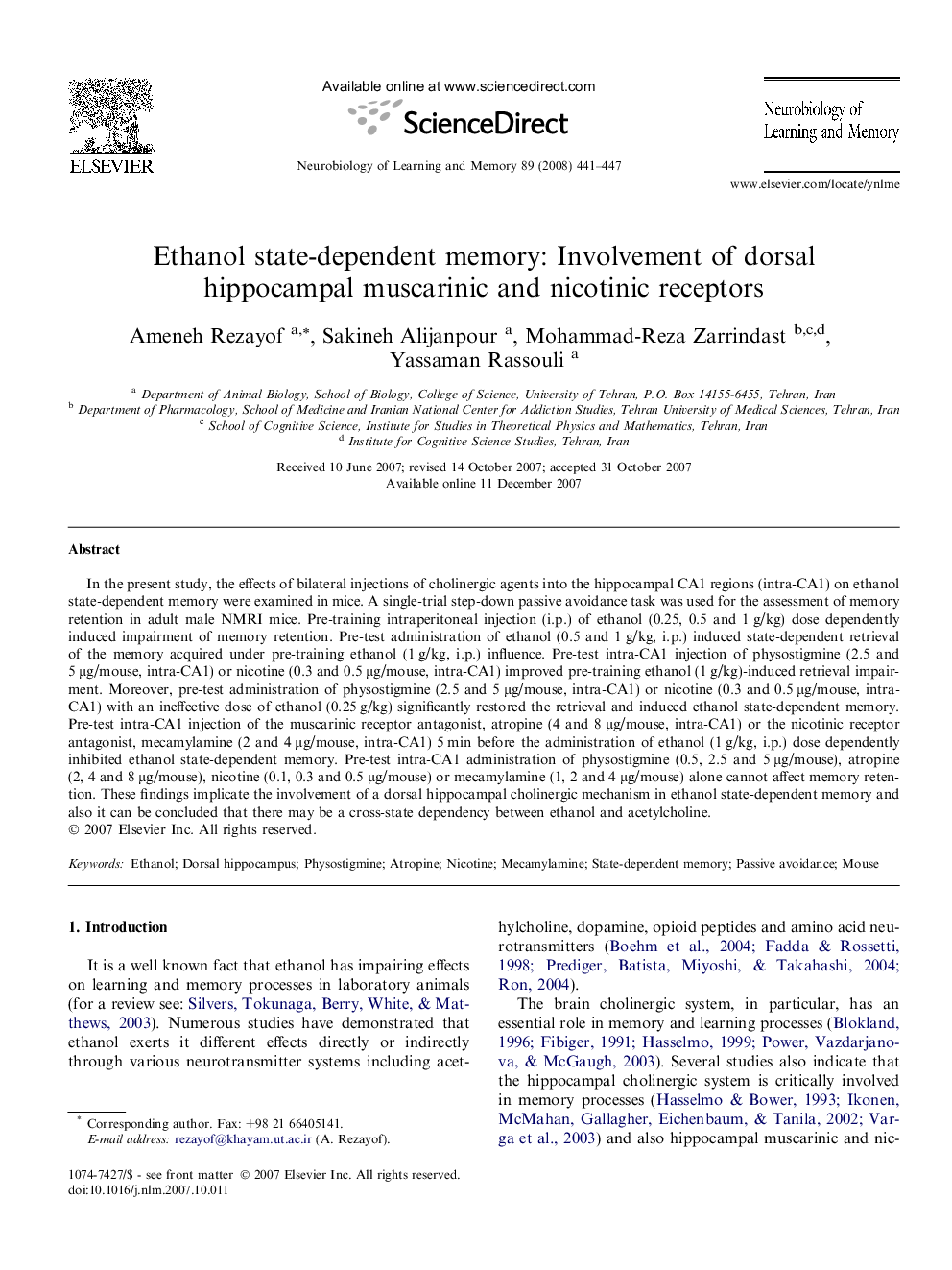| Article ID | Journal | Published Year | Pages | File Type |
|---|---|---|---|---|
| 937020 | Neurobiology of Learning and Memory | 2008 | 7 Pages |
In the present study, the effects of bilateral injections of cholinergic agents into the hippocampal CA1 regions (intra-CA1) on ethanol state-dependent memory were examined in mice. A single-trial step-down passive avoidance task was used for the assessment of memory retention in adult male NMRI mice. Pre-training intraperitoneal injection (i.p.) of ethanol (0.25, 0.5 and 1 g/kg) dose dependently induced impairment of memory retention. Pre-test administration of ethanol (0.5 and 1 g/kg, i.p.) induced state-dependent retrieval of the memory acquired under pre-training ethanol (1 g/kg, i.p.) influence. Pre-test intra-CA1 injection of physostigmine (2.5 and 5 μg/mouse, intra-CA1) or nicotine (0.3 and 0.5 μg/mouse, intra-CA1) improved pre-training ethanol (1 g/kg)-induced retrieval impairment. Moreover, pre-test administration of physostigmine (2.5 and 5 μg/mouse, intra-CA1) or nicotine (0.3 and 0.5 μg/mouse, intra-CA1) with an ineffective dose of ethanol (0.25 g/kg) significantly restored the retrieval and induced ethanol state-dependent memory. Pre-test intra-CA1 injection of the muscarinic receptor antagonist, atropine (4 and 8 μg/mouse, intra-CA1) or the nicotinic receptor antagonist, mecamylamine (2 and 4 μg/mouse, intra-CA1) 5 min before the administration of ethanol (1 g/kg, i.p.) dose dependently inhibited ethanol state-dependent memory. Pre-test intra-CA1 administration of physostigmine (0.5, 2.5 and 5 μg/mouse), atropine (2, 4 and 8 μg/mouse), nicotine (0.1, 0.3 and 0.5 μg/mouse) or mecamylamine (1, 2 and 4 μg/mouse) alone cannot affect memory retention. These findings implicate the involvement of a dorsal hippocampal cholinergic mechanism in ethanol state-dependent memory and also it can be concluded that there may be a cross-state dependency between ethanol and acetylcholine.
